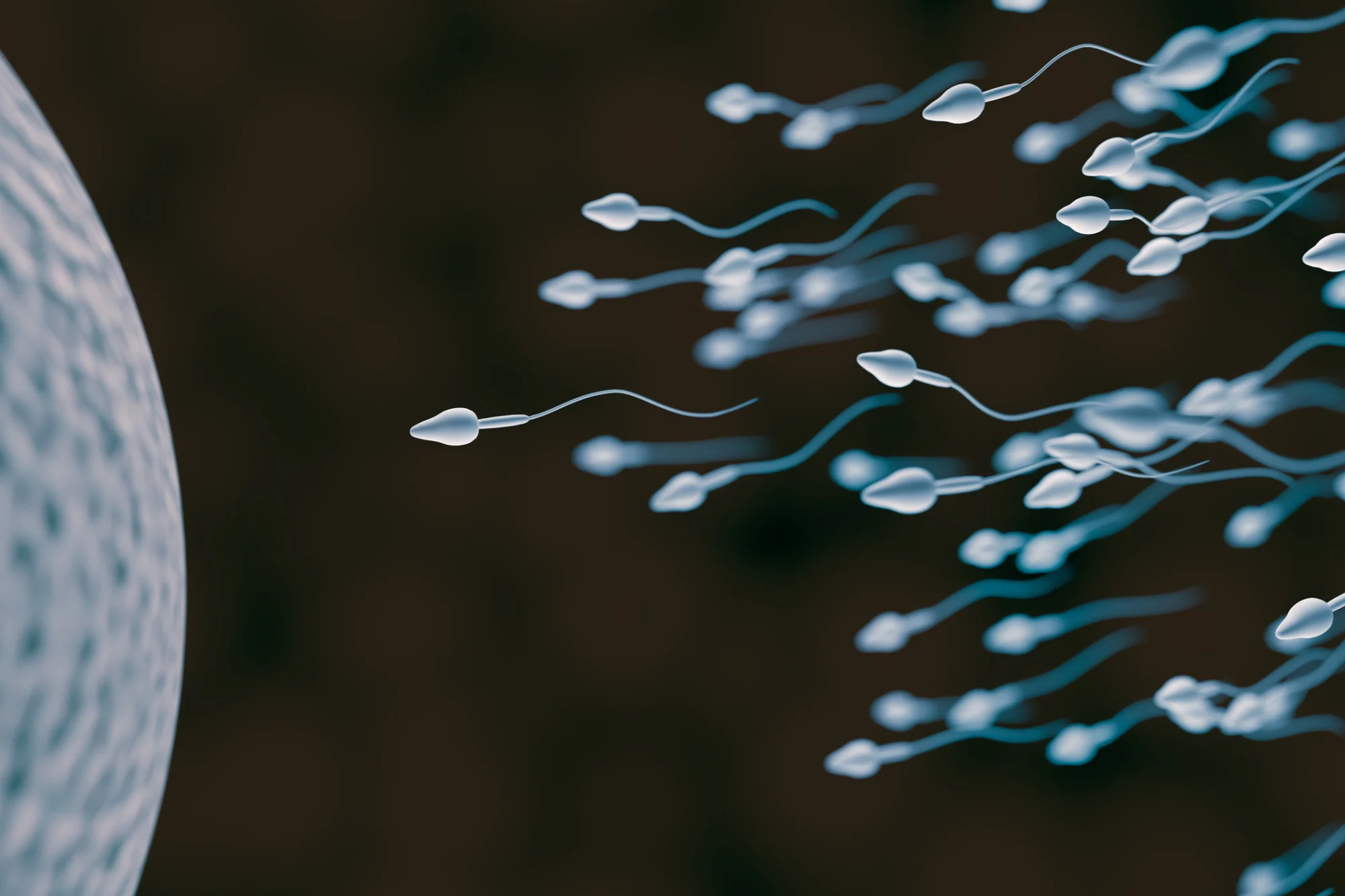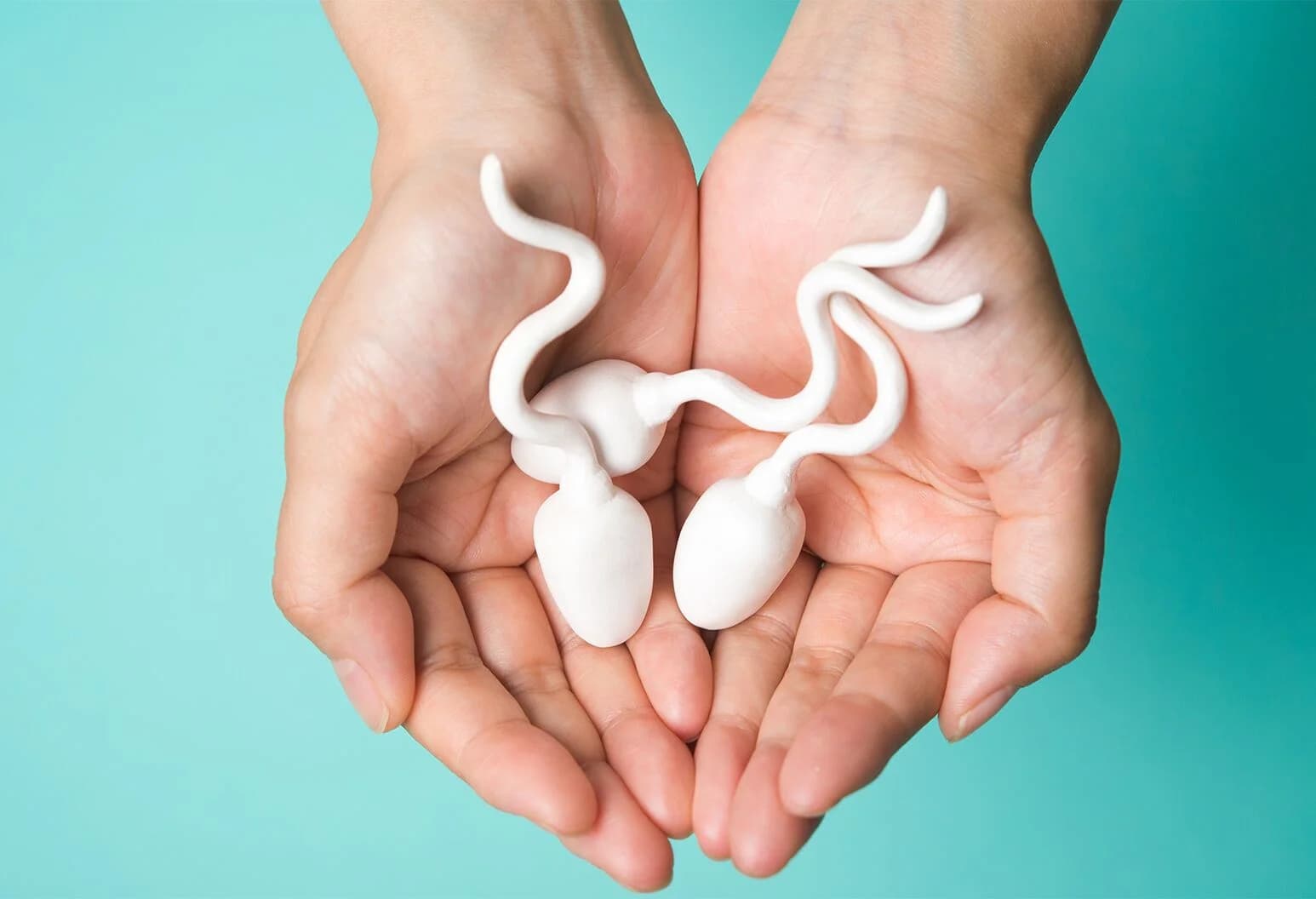Male Infertility refers to a disease of the reproductive system, which stops you from impregnating a female. If a couple has been having repeated unprotected sex for over a year and hasn’t been able to conceive, they should have some tests done to determine the cause. But this issue doesn’t automatically mean you won’t be able to have your child with your partner. Some treatments and procedures can increase the chances of conception. For a male to be able to conceive naturally, he must make healthy sperm that can fertilize the egg, as well as have an erection and ejaculate so the sperm reaches the egg. If there’s a problem with either of these, the male might have infertility.
What are the symptoms of male infertility?
The inability to conceive is the main symptom. Feelings of depression, loss, grief, inadequacy, and failure are common in males as well as females seeking pregnancy but constantly failing.

What can cause male infertility?
Azoospermia: An inability to produce sperm cells
Oligospermia: The production of low or poor-quality sperm
Genetic diseases: Such as Klinefelter’s syndrome, myotonic dystrophy, microdeletion, etc.
Malformed sperm: Sperm that cannot live long enough to fertilize the egg
Medical conditions: Such as diabetes, some autoimmune disorders, cystic fibrosis, and some infections.
Variococles: A condition where the veins on your testicles are larger than normal, causing them to overheat, which can affect the shape or number of your sperm.
Cancer treatments: Chemotherapy, radiation, or surgery that removes the testicles (one or both).
Unhealthy habits: Substance use, including alcohol, smoking, and drugs.
Hormonal disorders: Disorders that affect your hypothalamus or pituitary glands can affect your infertility.

Here we have some of the main causes of male infertility:
Sperm disorders
Problems with making healthy sperm are the most common causes of male infertility. Unhealthy sperm refers to sperm that is immature, abnormally shaped, unable to swim, or just not enough sperm. Making a low amount or no sperm may be caused by conditions such as:
Infections or inflammatory conditions
Hormone or pituitary gland problems
Immune problems in which you make antibodies against your sperm
Environmental and lifestyle factors (use of tobacco, heavy alcohol, marijuana or steroids, or exposure to toxins)
Genetic diseases, such as cystic fibrosis or hemochromatosis
Structural problems
Anything that blocks the genital tract can stop the flow of semen. Blockage may be a genetic or birth defect, it may also be caused by infection or inflammation from a sexually transmitted disease. Other structural problems include scar tissue from surgery or twisted, swollen veins in the scrotum.
Other factors
The problem causing male infertility maybe none of the above but erectile dysfunction or premature ejaculation. Liver or kidney disease, or treatment for seizure disorders are examples of problems that can cause infertility.

When should you see a doctor?
If you are concerned you may be an infertile man, these are some of the main factors that may indicate you need to visit a doctor:
Persistent Attempts at Conception: If you and your partner have been actively trying to conceive for 12 months or more without success, it’s time to consult a doctor. If you are over the age of 35, it’s advised that this time be 6 months.
Abnormal Semen Analysis: A semen analysis is a critical step. It involves assessing sperm count, morphology (shape), motility (movement), and signs of infections. Multiple tests over time ensure accurate results. Your doctor might perform a general physical examination and inquire about your medical history, including any inherited conditions, health problems, or surgeries that could affect fertility. If abnormalities are detected, you may be referred to a specialist.
Additional Diagnostic Tests: Depending on initial findings, your doctor may recommend further tests such as scrotal ultrasound (non-invasive test checking for issues in the testicles and supporting structures), transrectal ultrasound (examining the prostate and looking for blockages in the semen-carrying tubes), hormone testing (hormonal abnormalities can contribute to infertility), post-ejaculation urinalysis (may detect retrograde ejaculation), and genetic tests (for cases of extremely low sperm concentration, genetic causes may be explored).
Remember, early evaluation and diagnosis can lead to effective management and potential solutions for male infertility. Don’t hesitate to seek professional guidance if you have concerns.

Conclusions
Male infertility refers to the inability of a man to contribute to conception despite regular, unprotected sexual intercourse with a fertile partner. Approximately 15% of couples struggle with infertility, and male factors contribute to about 30-40% of these cases. Male fertility relies on healthy sperm production, motility (movement), and morphology (shape). Any disruption in these processes can lead to infertility.